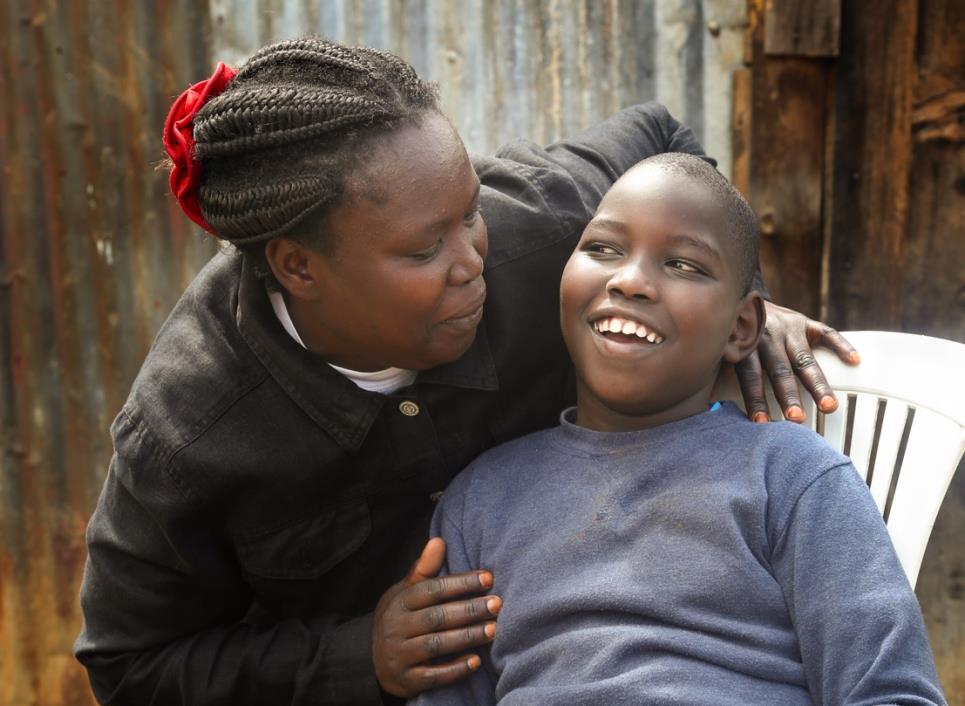
This Toolkit for Disability Inclusion in Care Reform represents a collection of work developed from the experience of many practitioners and organizations. As we learn about and scale care reform globally, we must consider disability inclusion in all that we do. Children with disabilities are disproportionately represented in residential care facilities and that they are too often are the last to be reunified with their own families, supported for independent living, or placed in alternative families. The aim of this toolkit is to increase the capacity and confidence of those working in children’s care, child protection and family strengthening to mainstream disability through every step, utilizing improvements to systems, practices, skills and attitudes. We envision family care for all children and the use of residential care only as a last resort when absolutely necessary and appropriate. The toolkit reinforces the importance of placing family care for children with disabilities at the top of any care reform agenda.
Overview of Toolkit Resources
Workshop packages build skills in disability awareness, etiquette, participation, self-advocacy and disability identification. The materials have been tailored to the learning needs of family strengthening and care reform practitioners.
Comprehensive guide provides step-by-step considerations for mainstreaming disabliity into the reunification, reintegration and transition of services processes.
Guidance documents provide tips for disability-inclusive community engagement activities, including service mapping and communication strategies to promote family care for children with disabilities.
Resources and links offer additional information, program examples, places and documents to go to learn more or access additional disability-inclusive program support.
|
|
- List of disability-related key terms and definitions
- Target audience: all family strengthening and care practitioners working on disability-inclusive programming or working to improve inclusion
- Use the key terms list to familiarize yourself with common disability terminology used throughout the toolkit
|
|
|
- Full-day workshop to introduce the identification of developmental delay and disability; includes slide deck, facilitator notes and handouts on developmental milestones, assessment/screening/diagnosis, early intervention and the effect of adverse experiences on the brain
- Target audience: Family strengthening and care practitioners or residential care providers to promote disability inclusion in family strengthening or care reform, as well as monitoring and evaluation staff
- Use this workshop to learn more about international disability identification tools, methods for identifying children in your community and methods to mitigate the impact of developmental delay and disability
|
|
|
- How-to guide outlining the minimum standards of care for children with disabilities living in residential care
- Target audience: Residential care providers, practitioners working with residential care facilities and technical advisors
- Use this guide to promote improved care for children with disabilities in line with international conventions
|
|
|
- Half-day workshop on participation and self-advocacy approaches for working with children with disabilities and their families; includes slides, facilitation notes and a sample list of country-specific disability rights
- Target Audience: Family strengthening and care reform practitioners or residential care facilities to promote disability inclusion in family strengthening or care reform
- Use this workshop package to build staff capacity to meaningfully promote participation of children with disabilities in care reform activities; this package may also be used alongside the considerations for family care social behavior-change guidance
|
|
|
- Guidance on mapping services and resources to support inclusion of children with disabilities, including advice on what services to incorporate, what kind of information to gather and an example from Kenya
- Target audience: Technical staff who strengthen referral systems, partner staff who make referrals and residential care facilities
- Use this guide to improve your service mapping exercises so they are inclusive of disability-related services and resources
|
|
|
- Content to be delivered in one, two or multi-day series of workshops to introduce disability and core concepts and practices, as well as understand your own and your organization’s current understanding, biases and capacity or learning needs: includes slide deck, facilitator notes and handouts on understanding disability, definitions and typologies, practicing disability inclusion, working with disability partners and more
- Target audience: Family strengthening and care practitioners or residential care facilities to promote disability inclusion in family strengthening or care reform
- Use this workshop to build understanding and capacity of your organization and staff around concepts related to disability and inclusion, disability rights, best practices for inclusion, and identifying and planning for ongoing learning needs around the topic
|
|
|
- Guidance on developing communications and advocacy strategies to raise awareness and influence others to promote family care for children with disabilities. Tips and resources to develop a strategy, identify audiences and formulate messages and effective delivery formats
- Target audience: Family strengthening and care practitioners, program managers or others wanting to advocate for disability inclusion in family strengthening or care reform
- Use this guide to improve your advocacy and awareness communications with key actors in your context
|
|
|
- Guidance, advice and job aids to support inclusion of children with disabilities within activities to reunify children in residential care to families, work with those children and families towards successful reintegration, and to support transition of residential to family support services.
- Target audience: Technical practitioners, program managers and others who work in reunification or transition of care services
- Use the guidance and resources to improve your practice in reunification, reintegration and transition of services to be disability inclusive
|
|
|
- Framework for reviewing parenting skills curricula for disability inclusion
- Target audience: Technical practitioners, program managers and others who work in family strengthening
- Examples of parenting curricula and parenting skills training modules that are disability inclusive
|
Practitioner Profile:

